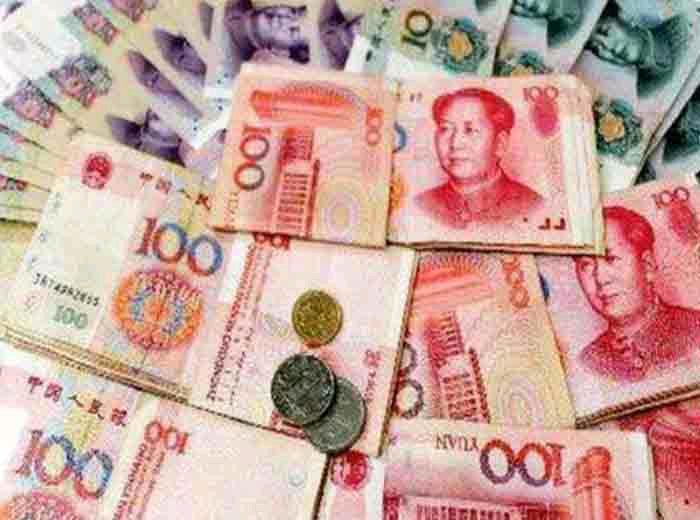After Two Decades,China Rises as Global Finan cial Power
2018-01-02
Two decades after the Asian financial crisis which tipped nations into economic and political turmoil, China now finds itself a major financial power capable of better global contribution. Latest progress in the financial sector includes global recognition of Chinese shares. The path has been neither smooth nor straight. When the crisis quickly enveloped most of the Asian economies including Chinas Hong Kong, the nations GDP and export growth slowed down markedly. China, however, made great efforts to protect its currency renminbi from devaluating, which contributed to stabilizing the regional and, in fact, the global economy. Lessons have been learned. The crisis could be traced to the premature opening up of capital accounts before domestic financial systems and regulations were ready. China has been steadfast on pursuing sound economic and financial policies as well as effective regulation and supervision over the past two decades, aiming to build a more open and competent financial system and fulfill its WTO commitments. From the banking sector reshuffle years ago to the current tight financial regulation, reforms never stop despite emerging problems especially in recent years. In 2013, a credit crunch at Chinese banks caused interbank rates to rise by double digits and pounded the market, seeding concerns among investors. In 2014, a major Chinese seafood company perplexed investors when it announced a huge questionable loss. In 2015, an unanticipated stock market plunge erased huge amounts of wealth, especially for small and new investors, spawning last years industry-wide reshuffle of online lenders. At the end of last year, Chinas financial system was backed by the worlds largest banking sector with assets of more than 232 trillion yuan(34 trillion U.S. dollars), a stock market valued of nearly 54 trillion yuan and an insurance sector with assets of over 15 trillion yuan. China now has a big say in the global financial system. Last year Ministry of Finance official Yang Shaolin was appointed chief administrative officer and managing director of the World Bank Group, following Zhu Min and Justin Lin Yifu who also served at international financial institutions. Despite these steps forward, China remains committed to letting the market play a bigger role in deciding interest rates and the yuan exchange rates.
Monetary Policies Likely to Tighten to Fight Economic Risks
Monetary policies are expected to become relatively tight in the second half of this year, as fending off financial risks has become a greater challenge than stabilizing growth, said economists and analysts. The change may mean less monetary liquidity in the market, as the government strengthens measures to tackle risks. Economists said the evidence of the central banks switch of focus in its monetary policy is found in a quick review of the 2017 financial stability report, released on July 4. It shows that although the Peoples Bank of China, the central bank, used the exact same wording describing its monetary policy stance-”prudent and neutral”-there was a change. It said it would keep liquidity and credit growth “at a basically reasonable level” this year. This was a change from last year, when it said it would keep liquidity and credit growth “ample and at a reasonable level”. That minor difference in wording in the midyear report put a greater priority on prevention of cross-sector financial risks, economists said. “The central banks expected fine-tuning of its monetary policy in the second half will depend less on changes in fundamentals, reflected by such indicators as CPI and employment. It has shifted its focus to adoption of monetary tools to tackle risk challenges,” said Su Jian, an economist at the Economic Research Institute of Peking University. Chinas year-on-year GDP growth reached a higher-than-expected 6.9 percent in the first quarter and is widely expected to be 6.8 percent for the second quarter before easing mildly in the coming quarters. China is eyeing 12 percent yearon-year M2 growth for this year. The central bank said earlier that the decline of M2 growth “may become a new normal” for the future.endprint

China to Expand Public Hospital Reform
China will expand reform within the countrys public hospitals nationwide this year, the National Health and Family Planning Commission (NHFPC) announced.
The hierarchical medical system pilot program will also be expanded to reach at least 85 percent of prefecturelevel regions, according to documents released by the commission.
More policies will be issued regarding the hierarchical medical system, hospital management, medical insurance, medicine supplies and comprehensive supervision by the end of the year.
Liang Wannian, an NHFPC official, said that system reforms covering medical services, insurance and medicine should be advanced in a coordinated manner.
China has earmarked over 1.4 tril- lion yuan (203 billion U.S. dollars) in its budget for health and medical expenditure this year.
Chinese Parents Favor Foreign Animations for Kids
Chinese animation series for children are losing out to foreign rivals as parents desperately seek to enhance their kids English proficiency from an early age. Based on the quality, diversity and price of online animated series, a so-called “chain of contempt” analysis of the sector went viral on social media. The pyramid-shaped graphic lists Chinese and foreign animation programs in three layers according to popularity. At the top are cartoons imported from the United States, Europe, South Korea and Japan, including Adventure Time, Bobs Burgers and Bear Bernard. These are followed by Walt Disney animations, SpongeBob SquarePants and Thomas the Tank Engine & Friends. The Chinese series Pleasant Goat and Big Big Wolf, Boonie Bears and GG Bond ranked at the bottom of the pyramid. A woman surnamed Chen said she tells her child to watch Peppa Pig, a British pre-school animation series, to learn English. She added domestic TV series have less value in teaching children because English is such an important survival skill that can be very helpful when they go to school. Besides the emphasis on learning English, an industry insider said Chinese parents also prefer foreign animations because they have a clear rating system to denote a works suitability for certain age groups, a system thats still lacking in China.
Chinese Authorities Step up Probe in ‘Rat Trading
Chinese authorities have stepped up their fight against “rat trading,” a type of insider trading, in recent years and vow to further tackle what they describe as an increasingly common crime that endangers the nations stock markets. Rat trading occurs when fund managers, based on insider information or unpublished information mostly accessed through their companies, use personal accounts to buy shares cheaply and sell them at a higher price for personal gains. This was classified as a criminal offense in 2009. In a statement on Friday, the Ministry of Public Security (MPS) said rat trading has been taking place at a higher rate across the country in recent years. Since 2014, authorities have launched more than 80 criminal investigations of alleged rat trading activities, according to the MPS. The investigations, which cover transactions worth more than 80 billion yuan($11.76 billion), have so far resulted in the conviction of 25 fund managers, the China Securities Regulatory Commission (CSRC) said in a statement also on Friday.endprint
